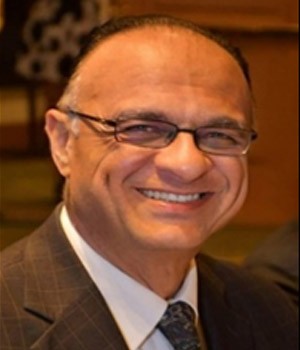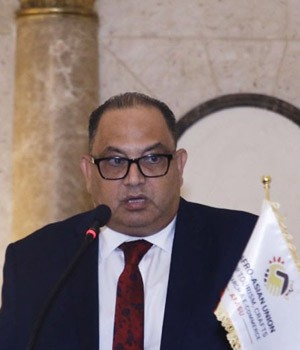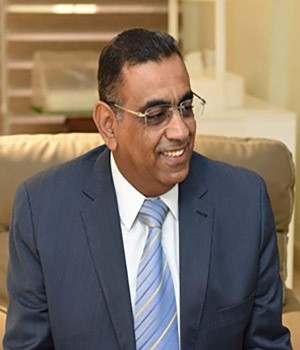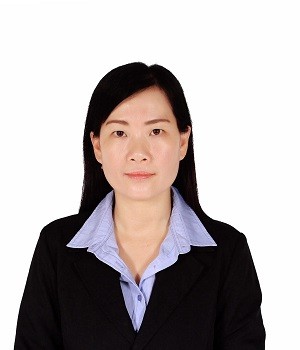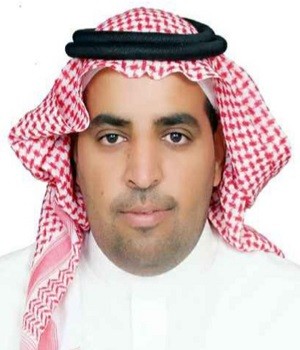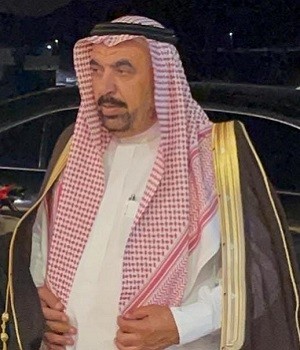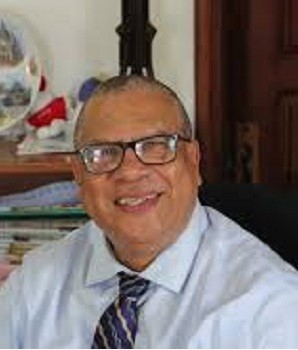- African-Asian UNION (AFASU)
Capital City of sustainable development Award

African Capital of Sustainable Development Award
Asian Capital of Sustainable Development Award
Who we are?
"AAPSO" Afro-Asian Peoples' Solidarity Organization is a non-Government body emerging from the International Conference held in Bandung-Indonesia in 1955. it is a global Non-Government Organization dedicated to the principles of national liberation and solidarity of under-developed and emerging countries’ people, spreading all kinds of love, peace, lenity and development in all aspects.
For that purpose, it was announced as an NGO in the name of the Afro-Asian Solidarity Council during the first 1958 conference conducted by the organization in its Cairo headquarters, Arab Republic of Egypt, And in the presence of 607 participants out of its founding countries.
"AAPSO" main goal is sustainability. and aiming to transfer our world through achieving the Sustainable Development Goals (SDGs).
"AAPSO" call, is taking actions to end poverty, inequality, protect our planet, and ensure health, justice, and prosperity of people.
It has a special interest in supporting the tourism, investment, and health and wellness sectors, and has established a special sector for sustainable development.
In order to achieve these noble goals, AAPSO has established an executive arm, which is the African-Asian Union, (AFASU) to help achieving its goals within Asia and Africa.
AAPSO is currently globally headed by Prof. Dr. Helmy El-Hadidi – the former Minister of Health in the Arab Republic of Egypt, and it is under the financial and administrative supervision of the Ministry of Foreign Affairs in Egypt.
The Afro-Asian People' Solidarity Organization (AAPSO) is a mass non-government organization with national committees, and their members in more than 90 countries in Asia and Africa and has associate member committees in Europe, Russia and Latin America.
It is an associate, active and observer member in many major international organizations such as the United Nations, the World Trade Organization, the League of Arab States, United Nations Conference on Trade and Development and most organizations in Asia, Africa, and Latin America.
This is a highly significant global organization with a rich and extensive background in African and Asian nations. It holds the distinction of being the oldest non-governmental organization globally, with a widespread membership that extends beyond Africa and Asia.
AFASU is to support all sectors and local community to alleviate poverty and raising the quality of Life of people in the Afro-Asian member (90) countries of AFASU.

AFASU VISION:
- We dream of Afro-Asian communities:
- with rising levels of prosperity .
- where employment and decent housing are accessible by all.
- where health outcomes are excellent.
- where vibrant community life emerges from diversity.
- where all show compassion to those who are in need.
- Where the two continents are integrated and solidarity in all fields.
AFASU Mission :
- Solutions to Poverty to Get Us To 2030 | Concern Worldwide
- Eliminating Poverty Through Equity. One of the main causes of poverty is inequality.
- Commit to climate change solutions and climate justice.
- Eradicating poverty through education.
- Halting poverty by ending hunger (and thirst)
- Poverty alleviation through peace.
- Cash solves poverty.
- Supporting economic development;
- Supporting Tourism and Handicraft Industry ,Good tourism supports and empowers the local economy and
- Handicrafts are an extensive representation of a region or nation's history and culture.
- Increasing access to healthcare and encouraging healthy behavior;
- Creating and sustaining public-private partnerships;
- Supporting vocational training can help meet the needs of the labor market, promote economic growth and development, reduce unemployment and poverty, and address the skills gap that exists in the country.
AFASU values :
- We invest in and strengthen our relationships and the relationship of our members. We work in team spirit and keep in mind that everyone that works with us and for us is personally involved in the lives of our community. This keeps us relationally connected to our neighbors and community. We intentionally invest in relationships as we invest in other aspects of community development.
- We have a fighting spirit and we never give up we are here for the long-term, even when things get hard. We do not launch programs and then leave but we are here till our vision has been accomplished.
- We work with great humility, love and sincerity, no matter how hard the work is. We learn and listen while we are at the height of humility
- Everything we do is built on an ethic of inclusion, diversity, and justice. Reconciliation is hard work and we are committed to building diverse relational bridges that lead to true justice.
- Always believing in our goals. THE AFASU Union aims to focus on a union supporting Africa and Asia development and integration in all sectors. (Tourism, handicrafts, development, technology, E-Commerce, training, et..)
President of AFASU:
AFASU Union has been founded & established under the presidency of Dr. Hossam Darwish – the first & current president in addition to being an international tourism expert, and one of the founders of the science of e-commerce, E-tourism, and digital marketing in the middle east.
Dr. Hossam Darwish worked for many and varied international organizations such as the United Nations and the League of Arab States (the Arab Tourism Organization). He organized dozens of local, Arab, and international conferences, seminars, and workshops, travelling around 71 countries.
He has participated, supported & supervised tens of Master & PHD theses all over the middle east, in addition to traveling across more than 55 countries, he has been honored domestically, regionally, and internationally for his well noted efforts in his specialties and spreading awareness for e-commerce and digital tourism & transformation & crafts in the Middle East.
He is a well-known speaker at all international forums in the field of tourism and travel, tourism marketing, E-tourism, in addition, Dr Hossam, is a pioneer in creating an innovative in all areas of digital and traditional tourism marketing, he also participated in setting the strategy for Arab tourism (ATO) in the League of Arab States.

Sustainability & The award Introduction:
Sustainable development is a concept that involves meeting the needs of the present without compromising the ability of future generations to meet their own needs. It aims to strike a balance between economic, social, and environmental dimensions to ensure long-term well-being and prosperity for both current and future populations.
The concept of sustainable development gained prominence in the late 20th century, particularly after the publication of the Brundtland Report in 1987 by the World Commission on Environment and Development. This report defined sustainable development as development that meets the needs of the present without compromising the ability of future generations to meet their own needs.
The three key pillars of sustainable development are:
- Economic Sustainability: This aspect focuses on promoting inclusive economic growth, ensuring fair distribution of resources and opportunities, and minimizing poverty and inequality. Sustainable economic development seeks to use resources efficiently, promote innovation, and adopt responsible business practices that contribute to the well-being of communities.
- Social Sustainability: Social sustainability aims to enhance the quality of life for all people by safeguarding human rights, promoting social equity, and providing access to basic services such as healthcare, education, and clean water. It involves empowering communities, respecting cultural diversity, and fostering social cohesion and inclusion.
- Environmental Sustainability: Environmental sustainability centres on protecting the natural environment and its resources for the benefit of current and future generations. It involves reducing greenhouse gas emissions, conserving biodiversity, minimizing pollution, promoting sustainable resource management, and adopting eco-friendly technologies and practices.
To achieve sustainable development, it is essential to consider the interconnectedness of these three pillars and recognize that actions in one area can have significant impacts on the others. Governments, businesses, communities, and individuals all play crucial roles in driving sustainable development through policies, initiatives, and responsible decision-making.
Several global agreements and initiatives, such as the United Nations' Sustainable Development Goals (SDGs), provide a framework for countries and organizations to work collaboratively toward achieving sustainable development targets by 2030. These goals cover a wide range of issues, including poverty alleviation, gender equality, climate action, clean energy, responsible consumption, and more.
In summary, sustainable development seeks to build a better future by balancing economic growth, social progress, and environmental protection, all while considering the needs of both current and future generations. It is a holistic approach that aims to create a harmonious and thriving world for everyone while preserving the planet's natural resources and ecosystems.
Why is sustainability important in a city?
What are the Most Important Features of Sustainable Cities ...
Sustainable cities play an important role in reducing global emissions. From sustainable public transportation to urban farming, we explore what are the most important features of sustainable cities and society, and how any cities can learn to help the plan.
What is the African and Asian Capital of Sustainable Development Awards?
The African and Asian Capital of Sustainable Development Awards was established to acknowledge, reward, and celebrate excellence in sustainable development by a city in the continents of Africa and Asia.
What does it mean to be a sustainable city? A sustainable city is one designed to address social, environmental, and economic impact through urban planning and city management. Many sustainable initiatives are achieved by building eco-friendly alternatives into city infrastructure, such as adopting walk and bike lanes.
According to specific conditions and criteria, the nominated cities in Africa and Asia will be evaluated to determine the best sustainable development city in the continents of Asia and Africa.
The accolade is called the African and Asian Capital of Sustainable Development signifying the most outstanding city for the practice, achievement, and ambition in sustainable development in the Africa and Asia regions.
Being bestowed with this award means that the city has earned the highest rating from a prominent committee of sustainable development experts across all sectors.
The ceremony of selecting and crowning the winning tourism capital will be held in September and October of each year.
The Sustainability Awards recognize achievements in five specific categories: sustainable energy, climate resilience, environmental and social best practice, environmental and social innovation, and gender and economic inclusion.
The aim of the award:
Promoting cities that strive to improve themselves to the best of their abilities, to encourage cities in the Africa and Asia region to strive for the highest standards and achievements in the application and commitment to sustainable development.
Our goal is to highlight the cities in Africa and Asia that are striving to implement and achieve the highest levels of sustainable development in the world.
The Sustainable Cities Awards were created to, firstly, celebrate the amazing achievements of councils, community groups, organizations, and individuals, and secondly, to provide a medium through which we can all apply learnings, feedback, and ideas to current or future projects.
We will announce to the whole world the cities in Africa and Asia that are deserving of this accolade, that they are the best city in the Africa and Asia regions in achievements and ambition of international quality standard sustainable development.
Our awards committee:
AFASU partners with a panel of sustainable development experts from around the globe for the African and Asian Capital of Sustainable Tourism Awards. They are all members of the Afro-Asian Union AFASU.
Selection criteria
Implementing sustainable development requires the consideration of various criteria to guide policies, projects, and actions towards achieving the goals of economic prosperity, social equity, and environmental protection.
The following criteria provide a foundation for implementing sustainable development across various sectors, from government policies and business practices to individual lifestyle choices.

| Criteria | Description | Indicators | Avg Weight/Score |
|---|---|---|---|
| Integration: |
Sustainable development necessitates the integration of economic, social, and environmental dimensions into decision-making processes. Policymakers and stakeholders must consider the interconnectedness of these three pillars and avoid approaches that prioritize one aspect at the expense of others. Moreover sustainable development requires taking a long-term view. It involves planning and investing in ways that will have positive impacts both now as well as in the future, considering the needs of future generations. These criteria are aimed at assessment of the city’s governmental facilities, their strategy vision and procedures to formulate sustainable development policy as well as the compatibility of the city’s strategic plans with the country’s strategic vision and governmental leadership plus support to encourage and promote sustainable development. |
|
20 |
| Participation and Engagement: |
Engaging stakeholders and involving affected communities in decision-making processes fosters ownership, accountability, and successful implementation of sustainable development initiatives. |
|
10 |
| Climate Action: |
Addressing climate change through measures like reducing greenhouse gas emissions, increasing renewable energy use, and promoting climate resilience is a critical component of sustainable development. |
|
10 |
| Economic Efficiency: |
Sustainable development involves using resources efficiently, promoting innovation, and adopting economic policies that support long-term growth while minimizing negative impacts on the environment and society. |
|
10 |
| Monitoring and Evaluation: |
Effective implementation requires robust monitoring and evaluation mechanisms to assess progress, identify challenges, and make necessary adjustments to achieve sustainable development objectives. |
|
10 |
| Global Cooperation: |
Sustainable development is a global endeavour that requires cooperation among nations, organizations, and individuals. Collaboration and sharing of knowledge, technology, and resources are vital to addressing global challenges collectively. |
|
10 |
| Education and Awareness: |
Building public awareness and promoting education about sustainable development principles can drive behaviour change and support the adoption of sustainable practices at all levels of society. |
|
10 |
| Overall Assessment | 100 |
- If the city satisfies most of the conditions, some conditions can be ignored.
- If the city has implemented significant sustainable development growth in the past five years and needs to be supported in order to sustain this momentum, certain requirements may be disregarded.
- The award lasts for a period of one year.
- The acceptance of both the chosen city for the award and the terms and conditions for winning the award is required.
The terms set to host AFASU Golden Award Committee.
- Acceptance of the award from the authority under which the winning city applies for the Capital of Sustainable Development Award.
- Hosting five members of the AFASU UNION Higher Committee including airline tickets and full-board five-star accommodation.
- Handing over the award in a press conference and gala dinner to which stakeholders, media and correspondents are invited.
- Sending a newsletter to the whole world in three languages about the award.
- Filming the award ceremony and delivering the videos and photos so that we can send them to our offices in 67 Countries.
- Making a trip to the city, as the committee are very important businessmen, tourism investors, and influencers.
- Placing the Afro-Asian Union logo on all festive publications.
- Follow-up of all these procedures will be in cooperation with the Director of the Protocol in the Federation.
- Placing the sustainable development capital logo in all media and places where the winning city is announced.
 العربية
العربية



